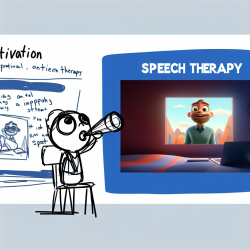The journey to becoming an effective practitioner is filled with challenges and learning opportunities. One innovative approach that’s gaining traction is the use of computerized clinical training simulations with virtual clients. This method is particularly valuable for practitioners working with clients who abuse alcohol, as it offers a safe and controlled environment to practice and refine clinical skills.
A recent study titled "Computerized Clinical Training Simulations with Virtual Clients Abusing Alcohol: Initial Feasibility, Acceptability, and Effectiveness" highlights the benefits of this approach. Conducted among Master of Social Work (MSW) students, the study found that virtual client simulations can significantly enhance clinical skills, self-efficacy, and overall preparedness for real-world client interactions.
Key Findings from the Study
The study evaluated three types of simulations:
- Motivational Interviewing (MI) with Gabe Turner
- Introducing Cognitive Behavioral Therapy (CBT) with Tanisha Mosley
- CBT Functional Analysis with Roger Ellison
Here are some of the key outcomes:
- High Completion Rates: Over 86% of students completed the required simulations, indicating strong engagement.
- Skill Improvement: Students showed significant improvement in their clinical skills, with scores increasing from an average of 63.41 to 93.64.
- Enhanced Self-Efficacy: There was a notable increase in students' confidence in their general clinical skills, exploration skills, insight skills, and action skills.
Practical Applications for Practitioners
As a practitioner, you can leverage these findings to enhance your skills and better serve your clients. Here are some practical steps to get started:
- Incorporate Simulations into Training: If you’re involved in training new practitioners, consider integrating virtual client simulations into your curriculum. This method offers a consistent and safe environment for skill development.
- Continuous Learning: Even experienced practitioners can benefit from these simulations. Use them to refresh your skills, try new techniques, and stay updated with best practices.
- Feedback and Reflection: One of the strengths of these simulations is the immediate feedback they provide. Use this feedback to reflect on your performance and identify areas for improvement.
- Expand Your Research: The study encourages further research into the effectiveness of virtual simulations. If you’re passionate about improving clinical training, consider conducting your own research or collaborating with academic institutions.
The Benefits of Virtual Simulations
Virtual client simulations offer several advantages over traditional training methods:
- Safe Learning Environment: Practitioners can make mistakes and learn from them without the risk of harming real clients.
- Consistent Training: Every practitioner gets the same training experience, ensuring uniformity in skill development.
- Cost-Effective: While initial setup costs can be high, virtual simulations can be more cost-effective in the long run compared to in-person training with actors.
Conclusion
The use of computerized clinical training simulations with virtual clients is a promising approach to enhancing practitioner skills. By incorporating these simulations into your training regimen, you can improve your clinical competence, boost your confidence, and ultimately provide better care to your clients.
To read the original research paper, please follow this link: Computerized Clinical Training Simulations with Virtual Clients Abusing Alcohol: Initial Feasibility, Acceptability, and Effectiveness.










